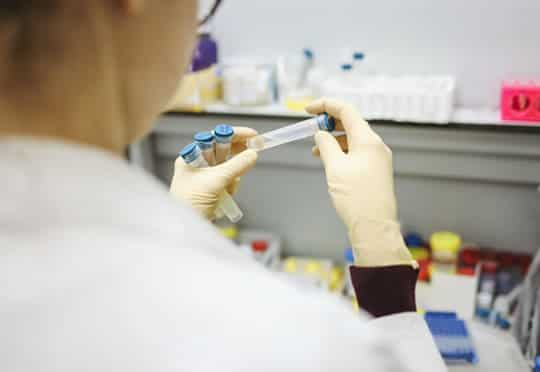A combination of 3 different drugs could be an effective therapy for treating COVID-19 patients.
A combination of interferon beta-1b, ribavirin, and lopinavir-ritonavir could alleviate symptoms and reduce the duration of COVID-19.
A 14-day treatment with the three antiviral drugs has been shown to be safe, to ease symptoms, and shorten the period of illness in patients with mild to moderate COVID-19, a new study found.
Past experience in treating infectious diseases has shown that giving a combination of antiviral drugs to hospitalised patients is more productive and also reduces antiviral drug resistance compared to single-drug therapy.
Based on this approach, a clinical trial looked into possible treatments for the coronavirus disease using multiple antiviral drugs in 127 hospitalised patients who were at the early stage of infection.
The triple drug therapy suppressed the viral load (amount of virus in the patient’s body) effectively within seven days of taking the medication.
The duration was much less than the average 12 days in the other group who were on lopinavir-ritonavir only.
The study’s outcome also showed a much better clinical improvement in the triple drug group.
The treatment halved the recovery time from 8 days to 4 days.
The length of stay in hospital was reduced from 15 days to 9 days.
Professor Kwok-Yung Yuen, the study’s lead author, said:
“Our trial demonstrates that early treatment of mild to moderate COVID-19 with a triple combination of antiviral drugs may rapidly suppress the amount of virus in a patient’s body, relieve symptoms, and reduce the risk to health-care workers by reducing the duration and quantity of viral shedding (when the virus is detectable and potentially transmissible).
Furthermore, the treatment combination appeared safe and well tolerated by patients.”
Previously, studies on patients with severe acute respiratory syndrome (SARS) in 2003 found that lopinavir-ritonavir, commonly used for the treatment of HIV, together with ribavirin, used for treating hepatitis C, diminished respiratory failure and change of dying.
Interferon beta-1b, a treatment for multiple sclerosis (MS), can also lower viral load and help lung function in cases affected by Middle East respiratory syndrome (MERS) coronavirus infection.
Dr Jenny Lo, study co-author, said:
“These findings suggest that interferon beta 1-b may be a key component of the combination treatment and is worth further investigation for the treatment of COVID-19.
Interferons are naturally occurring proteins, produced in response to viral infection, and the hope is that interferon beta-1b will boost the body’s ability to fight SARS-CoV-2.
Future phase 3 trials will soon confirm or refute the usefulness of this candidate drug as a backbone treatment for COVID-19.”
The study was published in The Lancet (Hung et al., 2020).

